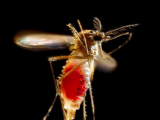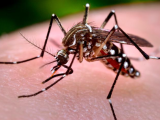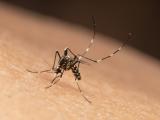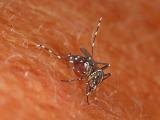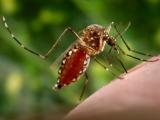The World Health Organization 's (WHO's) Zika emergency committee today broadened the scope of the public health emergency to include the virus itself—not just its complications—and declined to recommend that the upcoming Olympic and Paralympic Games in Brazil be moved or postponed.
Though the WHO has rejected calls to move the Olympic Games, politicians and representatives from some medical groups have kept up the pressure, prompting an announcement from the WHO last week that it would look at the issue again during emergency committee discussions.
The WHO's emergency committees typically meet every 3 months, or sooner if needed. The Zika group last met on Mar 8 and has now convened three times.
More than 200 health policy, bioethics, legal, and science experts recently signed an open letter to the WHO asking the agency to reconsider their advice. One of the organizers of the letter, Amir Attaran, PhD, associate professor of law and population health at the University of Ottawa, told the Associated Press (AP) that he was asked to join the emergency committee's deliberations on the Olympics issue, but the WHO rescinded his formal invitation when he wouldn't sign a routine confidentiality clause.
Grappling with mass-gathering issues
At a media briefing today to announce the group's recommendations, David Heymann, MD, who chairs the emergency committee, said the committee broadened the scope of the public health emergency of international concern to include Zika virus, not just its complications. He is with the London School of Hygiene and Tropical Medicine.
Heymann said the group expanded the definition, because since the committee last met, the global health community reached scientific consensus that it is a cause of microcephaly and other neurologic complications such as Guillain-Barre syndrome. He added that the panel also took on two other issues: the potential impact of Zika virus on mass gatherings and if the summer games in Brazil pose a risk of further international spread.
Regarding mass gatherings in general, Heymann said the committee, after hearing from three additional experts on the topic, concluded that the risk to an individual would be the same as in any other area where Zika virus is circulating, whether or not a mass gathering is taking place.
The group affirmed its previous advice for international travelers, including that pregnant women avoid travel to affected areas, that partners of pregnant women practice safe sex after returning from Zika-hit areas, and that travelers take precautions to avoid mosquito bites.
Very low risk of international spread
The committee concluded, after input from experts on bioethics, travel medicine, and mass gatherings, that the risk of international spread because of the upcoming games is very low. They noted the low levels of mosquito activity during what will be the region's winter and enhanced vector control activities that are under way to shrink mosquito activity even lower.
The group said there should be no general restrictions on travel and trade with countries or areas affected by Zika virus, including Brazilian cities that will host the Olympic and Paralymic Games.
In tweaking its public health recommendations, the committee urged Brazil to continue its work on intensifying vector control and surveillance in cities and venues hosting the games. to make information on the steps and results publicly available, and to ensure enough insect repellent and condoms for athletes and visitors.
Bruce Aylward, MD, MPH, he WHO's executive director for outbreaks and health emergencies, said during the question-and-answer part of the briefing that, in a nutshell, mass gatherings can amplify international spread, but the summer games in Brazil pose a much lower risk.
He said the emergency committee was briefed on an impressive amount of data, including those regarding the last three or four Olympics, which had minimal impact on overall international travel patterns.
He said 20% of the world's population lives in areas where Zika virus is currently circulating and 30% of daily arrivals and departures globally are from Zika-affected countries.
Vaccine, Colombia issues
Weighing in on other Zika topics, Aylward said a sobering message from today's meeting was how long the timeline still is for a Zika vaccine, though about 30 diagnostic products are in the more quickly moving pipeline.
When questioned about why Colombia, a country hit hard by Zika in the wake of Brazil's outbreak, has reported few microcephaly cases, Aylward and Heymann said the picture there isn't clear yet. They said Colombia so far is reporting only microcephaly cases involving live births, whereas some countries—such as French Polynesia—report stillbirths and other pregnancy losses.
Also, they said they're hearing from some countries that birth defect rates have been affected by advice to pregnant women on how to minimize their risks.
See also:
Jun 14 WHO statement
Jun 14 WHO media briefing audiofile
Jun 14 AP story
Jun 6 CIDRAP News story "WHO committee to weigh Olympic Zika threat"


